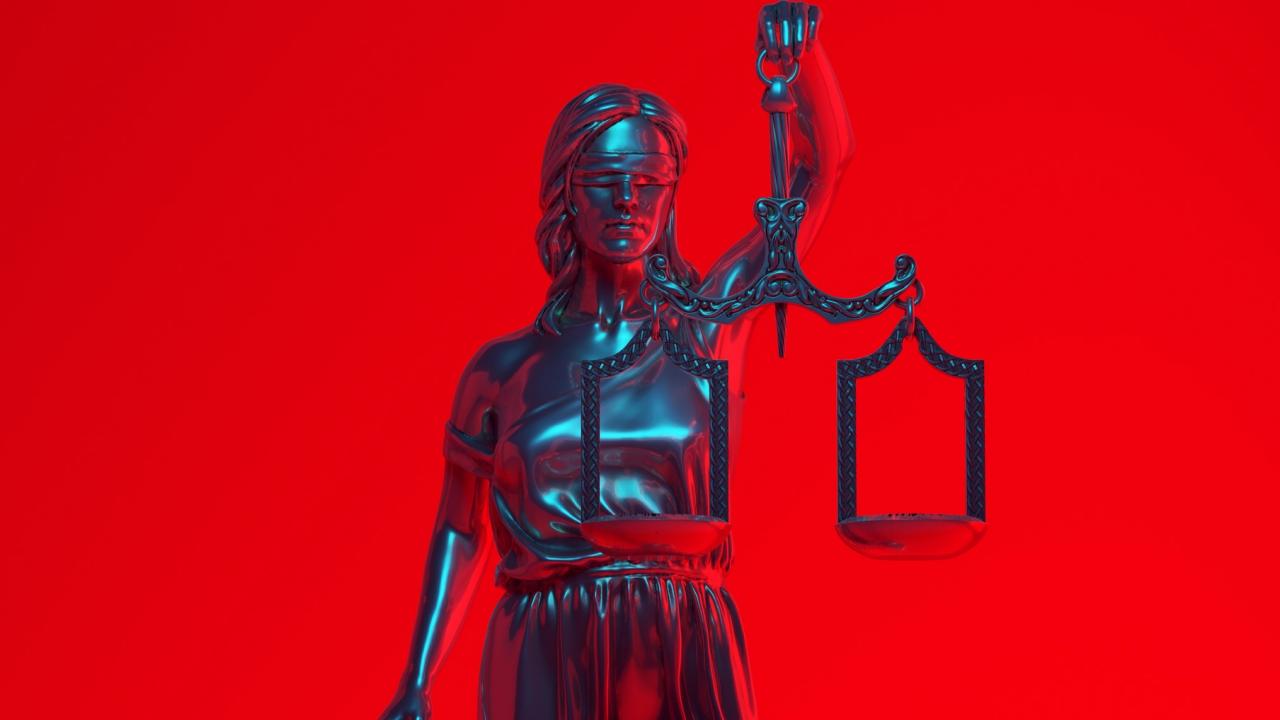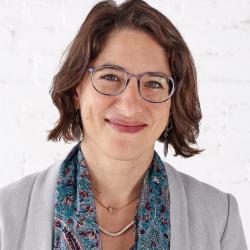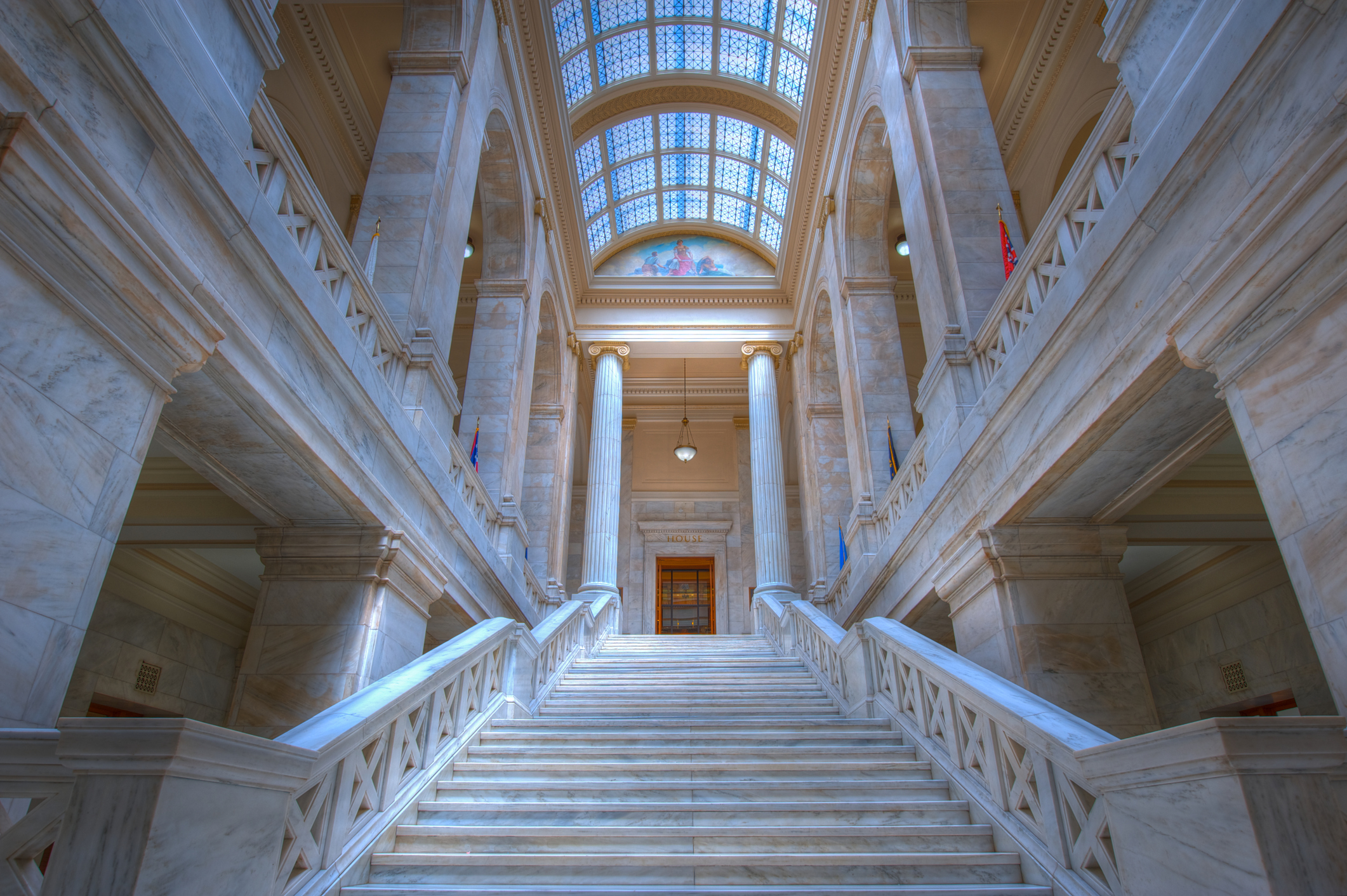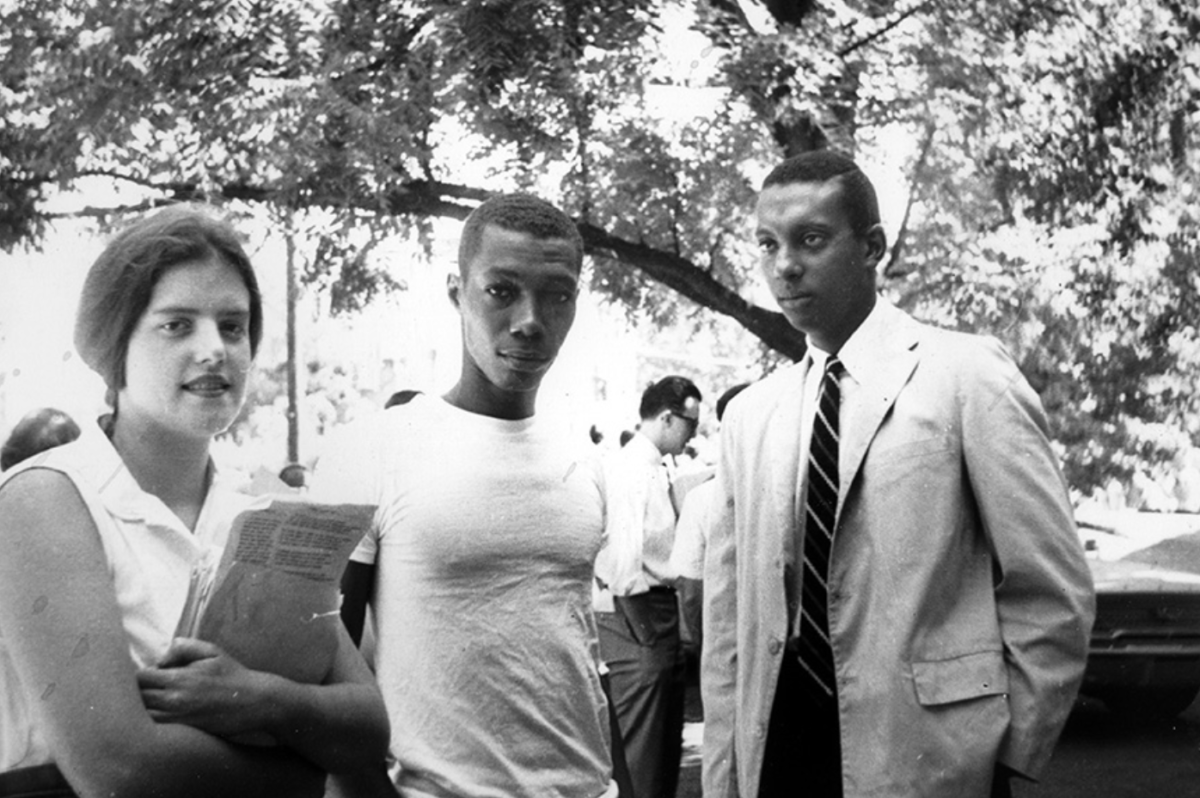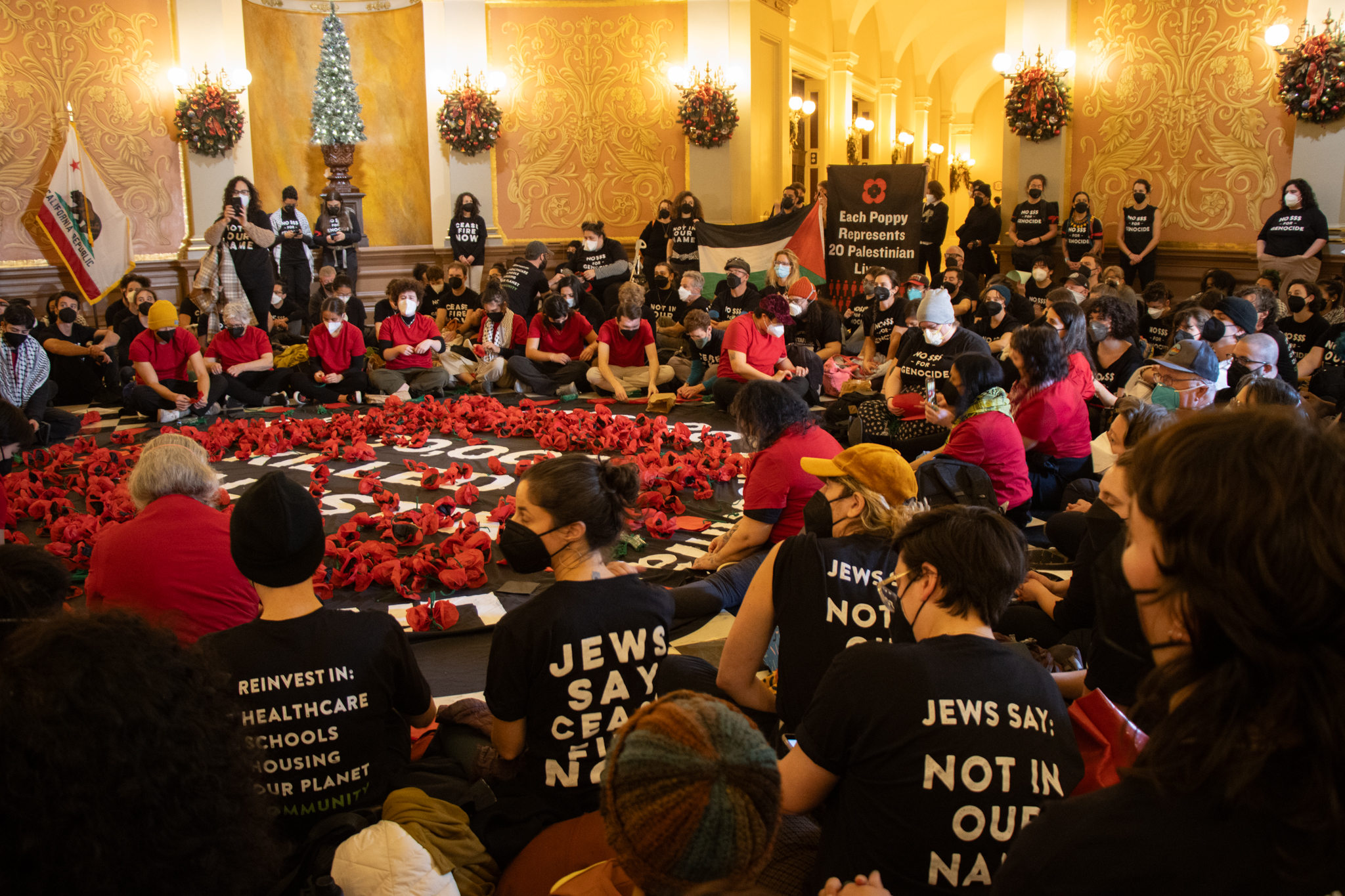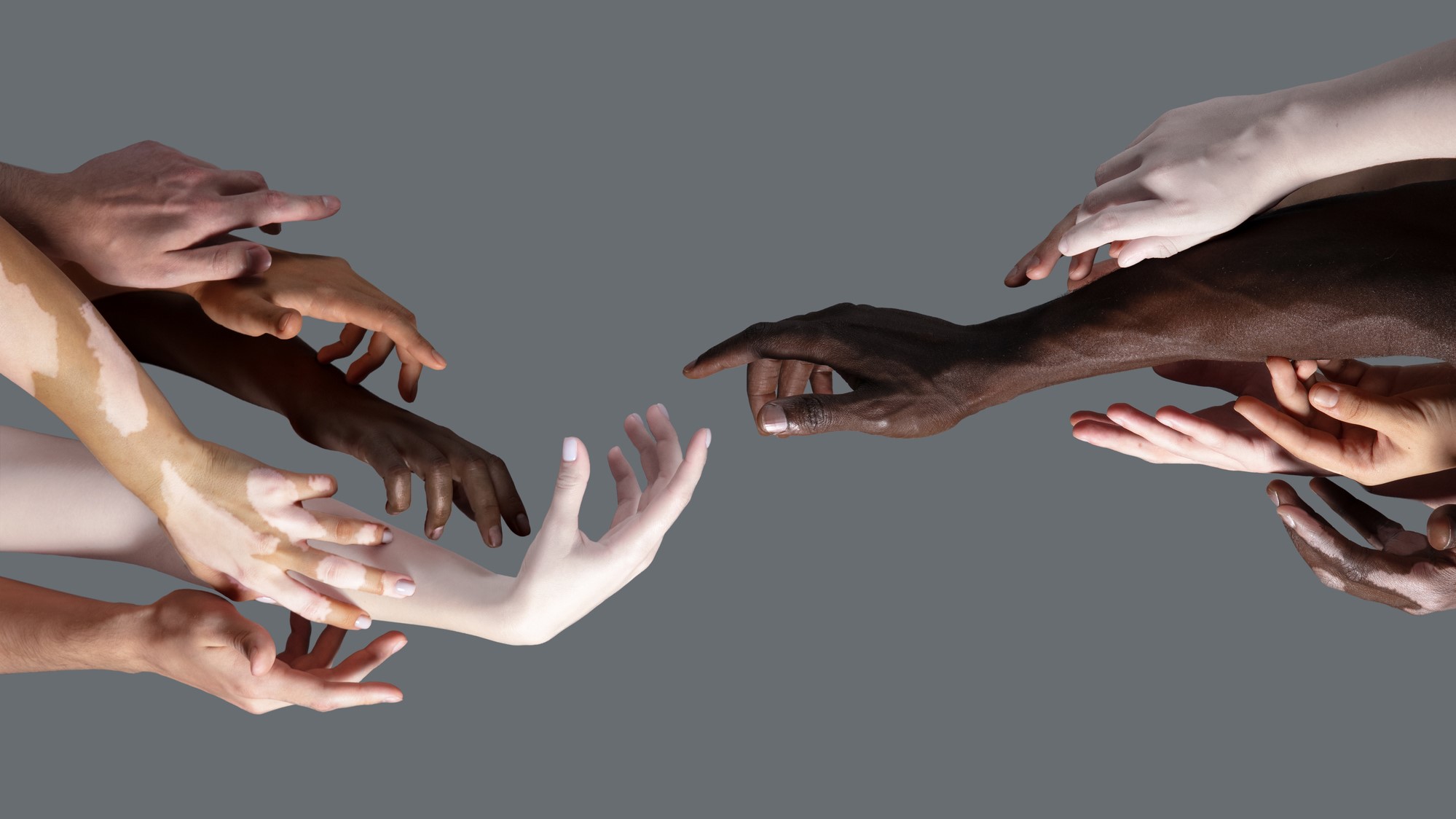From Palestine Legal’s vantage point as a legal organization working over the last decade-plus to challenge forces trying to criminalize and punish Palestine solidarity, we have seen a huge advancement in repressive tactics. These include: an increasingly sophisticated doxing infrastructure, the legislation in many states that bars state contracts with entities that boycott Israel, the lawsuits baselessly alleging support for terrorism filed by Zionist groups against humanitarian and advocacy organizations, the attempt to codify the conflation of anti-Zionism and antisemitism, and the weaponization of anti-discrimination laws against students and academics.
The last year of genocide in Gaza has advanced these attacks like nothing before –– much more than Trump’s first term in office. It has exposed how aligned the global order is on the dehumanization and disposability of Black and brown and poor lives. And liberal institutions are in effect fodder here –– they have become fuel for the fascist future, basically willingly, by falling for what Ananya Roy called ‘the ruse of liberal frameworks’ in her remarks at the Through the Portal conference. These liberal frameworks ––those that uplift individual rights like anti-discrimination laws, free speech, and individual accountability and solutions (rarely structural ones) –– have been turned against us. What critical race theorists have long said is more true now than ever –– as long as the law doesn’t recognize, adjust for, and actively challenge underlying power structures and dynamics it will always be wielded and exploited by the rich and powerful.
A couple examples of how this weaponization of liberal frameworks has played out: First, our vaunted free speech principles are generally whittled away, except when they’re strengthened for corporations. Every time our movements mobilize and make gains, laws pop up aiming to criminalize organizing strategies: anti-boycott laws, critical infrastructure laws criminalizing Indigenous and environmental justice protests of pipelines, anti-protest laws prohibiting disruption and criminalizing organizers of protests if anything happens at a protest, and on and on.
It’s also become harder to prove racial discrimination under anti-discrimination laws, except when it’s “reverse discrimination” and cis-hetero white people claim to be threatened. The book-bans, anti-DEI laws, and anti-CRT laws that are proliferating across the US all have the same logic as efforts to codify the conflation of antisemitism and anti-Zionism. They are all policing what we can or can’t say about our histories. The logic is that we have to protect the systemic offenders (or those who benefit from systemic offenses) from feeling guilty or excluded by the people calling out those systemic offenses. All of these kinds of measures focus the discussion on, for example, protecting white kids from learning about slavery –– lest they feel guilty that their ancestors may have been slave owners –– or protecting Jewish kids taught to love Israel from hearing facts about Israel’s oppression of Palestinians by calling the teaching of such facts “discrimination.” These attacks are destroying decades of work among educators to combat the legacies of the racial capitalism and settler colonialism that have shaped our collective history and our present realities.
And finally, Israel has yet to be held accountable for a single one of the sadistic genocidal acts that it’s committed every day of the last year and the last 76 years in any legal forum, domestic or international, nor has the US for its own crimes over its decades of global domination. Meanwhile, we see universities and law enforcement agencies and prosecutors treating student encampments taking a stand against such crimes as if they’re a criminal conspiracy, while any and all forms of resistance to settler colonialism and genocide and ethnic cleansing are labeled as “terrorism.”
Before October 2023, it felt like we were making progress here and there, penetrating these liberal frameworks. We were showing how the repression of Palestine advocacy, bolstered by the constant dog-whistles of antisemitism and support for terrorism to shield Israel from criticism and crush Palestine solidarity, were themselves forms of anti-Palestinian racism that needed to be addressed by anti-discrimination laws.
Now the veil is off and it’s clear that our appeals to these liberal frameworks are like spitting in the wind. Like the racist laws of the Jim Crow era, these frameworks and the institutions that uphold them refuse to acknowledge anti-Palestinian racism or Israeli criminality because they don’t acknowledge Palestinian humanity. They are, in effect, ruses pretending to be a vehicle for “equality” and “inclusion” for individuals, but ultimately they are so weak that they end up protecting and even reinforcing the systemic inequality and racism at the heart of this world order.
It feels tough to be a lawyer right now because the repression is so immense. The legal system is not built to protect us. Quite the opposite, it is designed to criminalize us. And there is frustration that there are limitations on how much we can use the law to fight back, even as those we are opposing are committing a livestreamed genocide, attacking activists and the infrastructure of our movements, and tying our people and organizations up in court. Israel and its apologists know that they have lost the moral argument, and the only way they can beat us is by finding ways to shut us up.
We still have to creatively use all the tools at our disposal to challenge this repression, but without any illusion that the law or the courts will save us. What is clear is that it’s the task of lawyers right now to defend our people, who have the complete moral clarity to be out in the streets, to speak out and take action in any and every way they can to stop the genocide –– as well as the attacks on Black lives, Indigenous land and life, reproductive and LGBTQ rights, and the planet itself. And to do that, we need to build the base of movement lawyers who will challenge the repression so our people can go back out to protest another day and know they’re not alone.
We also have to make sure our institutions are prepared and resilient enough to withstand what’s coming: the lawsuits and the congressional subpoenas, the sabotage, criminal prosecutions, and perhaps worse.
In order to accomplish this, we need to help build and protect the movement’s infrastructure in diverse ways that aren’t fully reliant on the very structures and institutions that are working to destroy them. That includes a need for mutual aid in the legal realm, through legal defense funds, to ensure that there are enough resources to defend our people and organizations. And we need to heed Thenjiwe McHarris’ warnings to resist the egos, the competition, and the siloing that is typical in the non-profit and organizing realms. We also need to work towards more collaboration and sharing of ideas, strategies, and resources that can help unify our struggles and make it harder for the opposition to isolate and pick us off.
What feels clear is that these entities –– Israel, the US, and the old world order they represent –– are crumbling. They will not go quietly. They’ll cause maximal destruction along the way. Gaza is a testament to this destruction. The souls and bodies of Palestinians will feel the impact of this genocide for decades, for generations, just as they have been carrying the wounds of the last 100 years.
One of the symptoms of this decline is the reactionary neofascist dismantling of the liberal legal order described above. The fundamental question as we face the painful road ahead is whether we should be investing in saving that order, propping it up, and giving it legitimacy through our organizing, our legal work, our daily lives? Or should we be spending our precious energy imagining and building and enacting –– even as we defend our people –– a new order that gets us closer to a world we want to see? If indeed Palestine is a portal to a liberated future, as Robin Kelley posited, how can we wield our incredible collective power to make sure that the “day after” –– whether in Palestine or the US, is not the status quo ante, or much much worse? How can we make sure we walk out of the utter devastation of Gaza and into a future we’re proud of, that doesn’t recreate the trauma but heals it?
